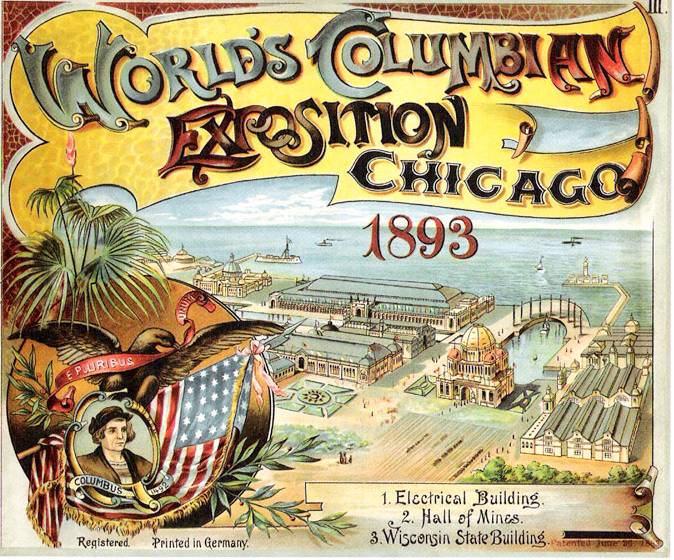6. Turner: Geography and the Frontier
Return to History 8 Historiography ID's
Frederick Jackson Turner was born in Portage, Wisconsin, in 1861. His father, a journalist by trade and local historian by avocation, piqued Turner's interest in history. After his graduation from the University of Wisconsin in 1884, Turner decided to become a professional historian, and received his Ph.D. from Johns Hopkins University in 1890. He served as a teacher and scholar at the University of Wisconsin from 1889 to 1910. He retired in 1924 but continued his research until his death in 1932.
In the words of Turner, "The existence of an area of free land, its continuous recession, and the advance of American settlement westward explain American development." This quote led to the the foundation for modern historical studies of the American West and presented a "frontier thesis" that continues to influence historical thinking today. Turner's thesis states that the character of a person is determined by geography and, depending on the situation, gives them certain advantages and disadvantages. For example, if someone were to live in a rural area surrounded by flat fields, they might enjoy a peaceful living with fertile soil. On the other hand, flat areas of land often cause many natural disasters that could put the peoples' lives in danger. Turner's contribution to American history argued that the frontier past best explained the distinctive history of the United States and articulated this idea in The Significance of the Frontier in American History.
At the 1893 World's Columbian Exposition, Turner stated in an address that the most influential element of United States history was expansion. In his speech, Turner explained that “the existence of an area of free land, its continuous recession, and the advance of American settlement westward explain American development.” This means that the presence of the western frontier helped shape American culture and lifestyle. According to Turner, the expansion in the frontier had instilled a certain "coarseness and strength" and "acuteness and acquisitiveness" in the American population. When the Census Bureau released a statement in 1890 that all the United States' had been claimed, it meant that there was no longer a frontier. To Turner, the closing of the Frontier was the end of American History's first period.


Sources:
Eighth History Manual Page 4
Historiography Presentation
http://www.pbs.org/weta/thewest/people/s_z/turner.htm (image)
https://travsd.wordpress.com/2010/10/11/world-columbian-exposition/ (image)
For more information, visit: http://www.pbs.org/weta/thewest/people/s_z/turner.htm http://www.digitalhistory.uh.edu/disp_textbook.cfm?smtid=2&psid=3154
By: Eleanor Devetski and Jack Curtin